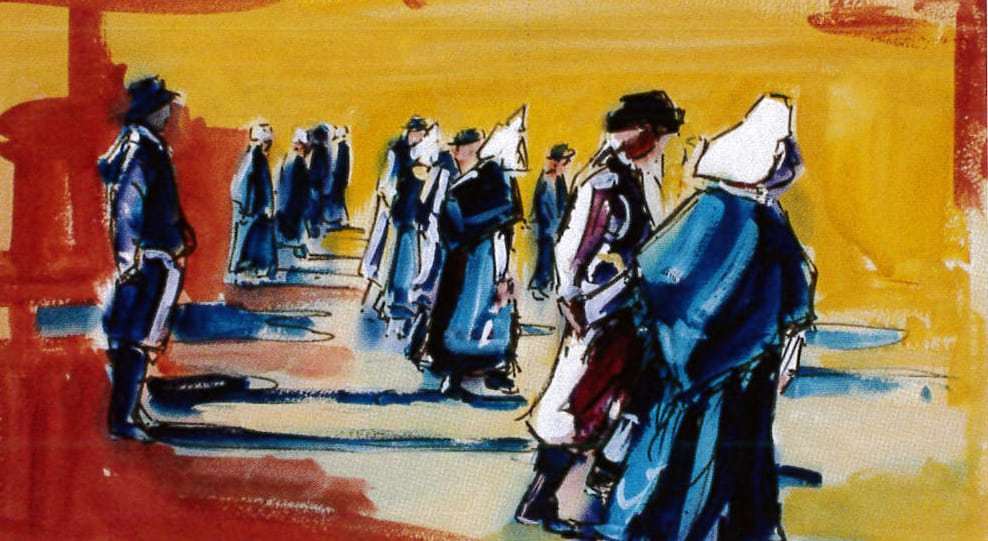
Marilyn Allis uses watercolour and sepia pen to capture the life and movement in this Breton scene.
It is often easy to get caught up in the detail of a scene and in so doing lose the sense of spontaneity and movement. I love the movement that you can create using washes of watercolour and the lined drawing of a pen. I decided to use Sepia and a larger thick tipped pen, which I hoped would create a painting rather like the old Breton style of paintings that you see all over Brittany. These Breton dancers were performing one evening on the promenade of St Cast and were far too irresistible not to paint. I wanted to re-create the movement and something in keeping with the feel of this part of France, by using a style and colours that are common in this area.
To begin with, draw a rough pencil outline, to give you a guide to follow when you are ready to draw using your Sepia pen.
Using a whopper brush and clean water wet the whole of your paper (I used a 1/2 Imperial sheet of Rough Arches watercolour paper). Whilst the paper is still wet, add a wash of Raw Sienna and another wash of Light Red into your background.
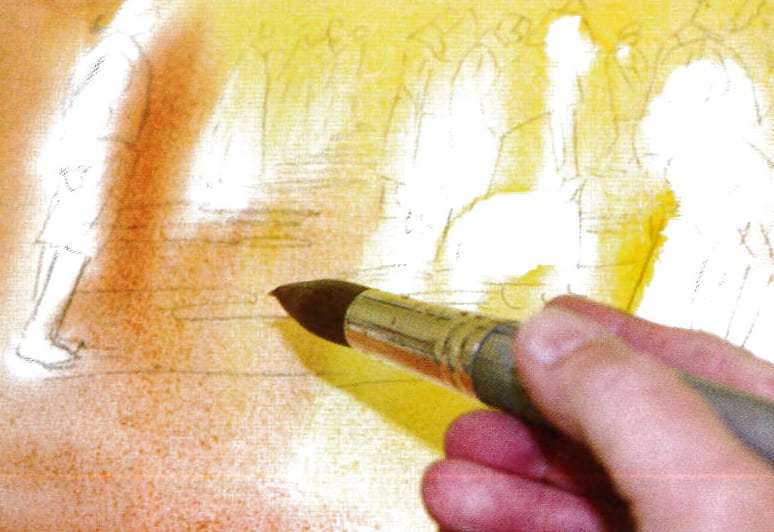
Whilst these mixes are still wet run in some Prussian Blue, Intense Violet some Light Red and Alizarin Crimson into the areas where you have drawn your figures. This will run and look very blurry which, although a bit disturbing to the artist at this stage, is exactly what you need in order to create looseness and movement later.
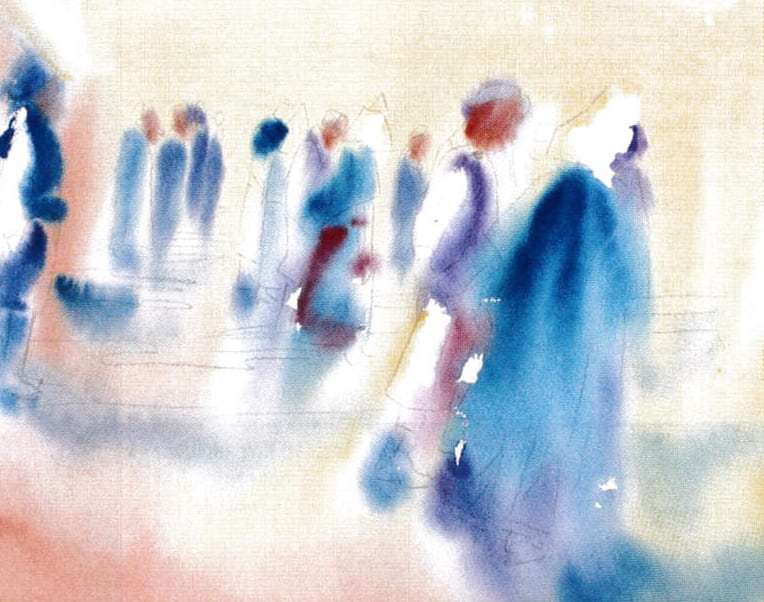
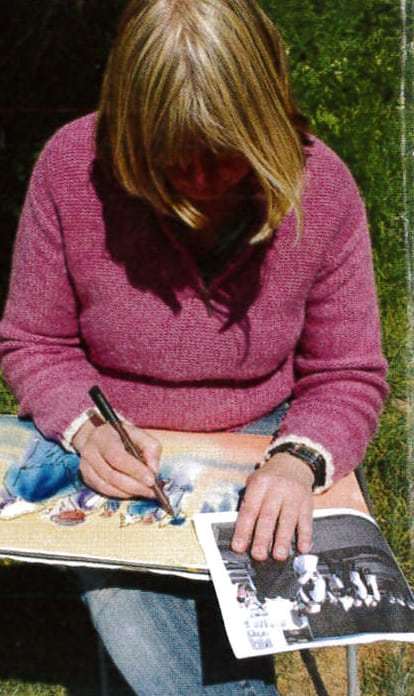
With the Sepia Brush Pen draw your figures on top of the watercolour, this time drawing more precisely but without being overly tight.
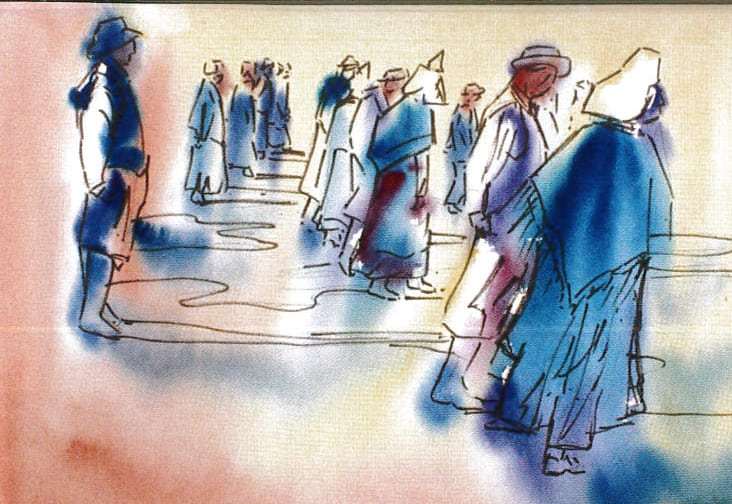
Now you will need to create some depth as everything looks a bit wishy-washy at this stage. Take some very thick Prussian Blue – and some Cerulean Blue with hardly any water added – and using your brush add quick dabs of colour to the dark dress of the female dancer. Add a little Intense Violet for the Shadow on her white shirt.
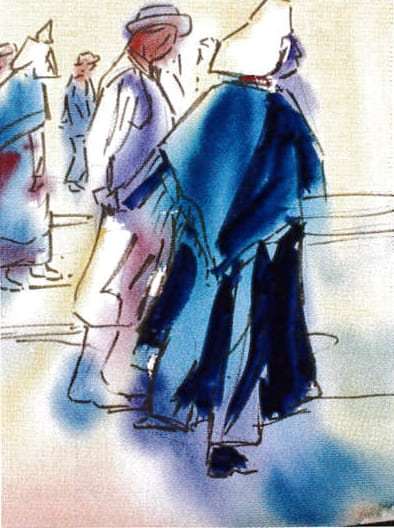
Do the same to the dark clothes of the male dancer again using Intense Violet.
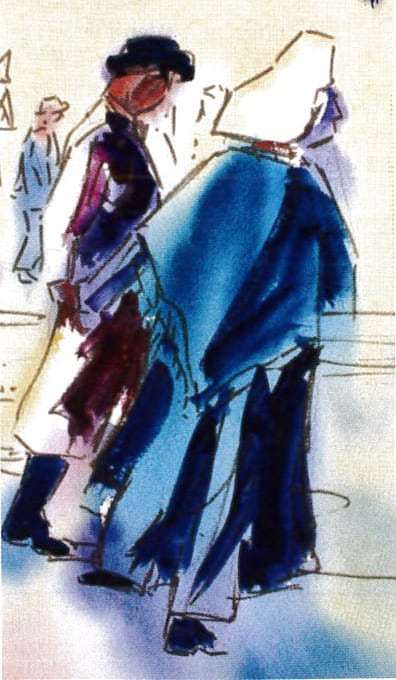
Use a little Alizarin Crimson on the middle dancer and on the one slightly to the left. Using some Opaque White mixed in with the colours that you used to create a solid pigment, finish painting the dancing figures. Make sure you keep the Opaque White paint well away from your normal mixing palette. Add any highlights if you need to with white to help.
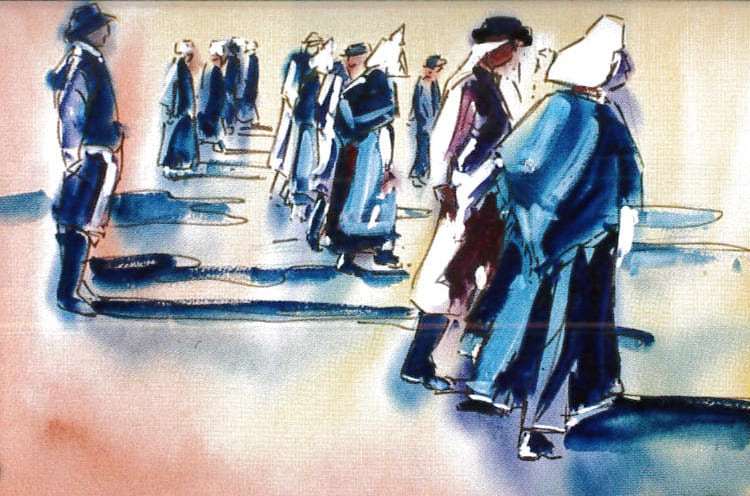
Using a whopper brush and a mix of Raw Sienna and Opaque White block out a lot of the background, with just some of the underneath watercolour showing through, then do the same with a mix of Light Red and Opaque White.
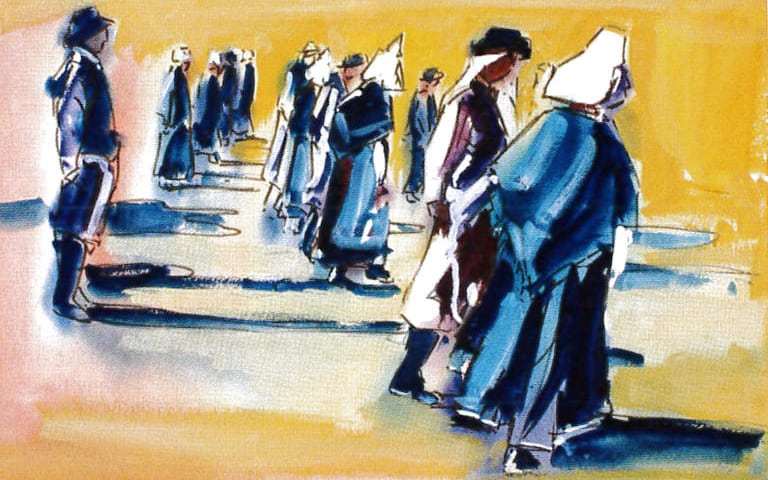
Finally, using your Sepia pen draw over the dancers again to add even more movement and that Breton feel to add the finishing touches to your painting.
